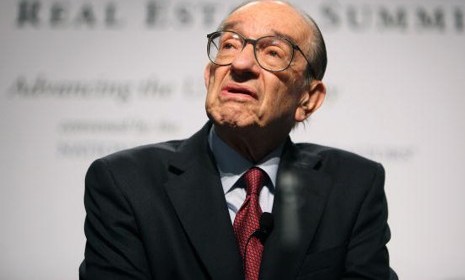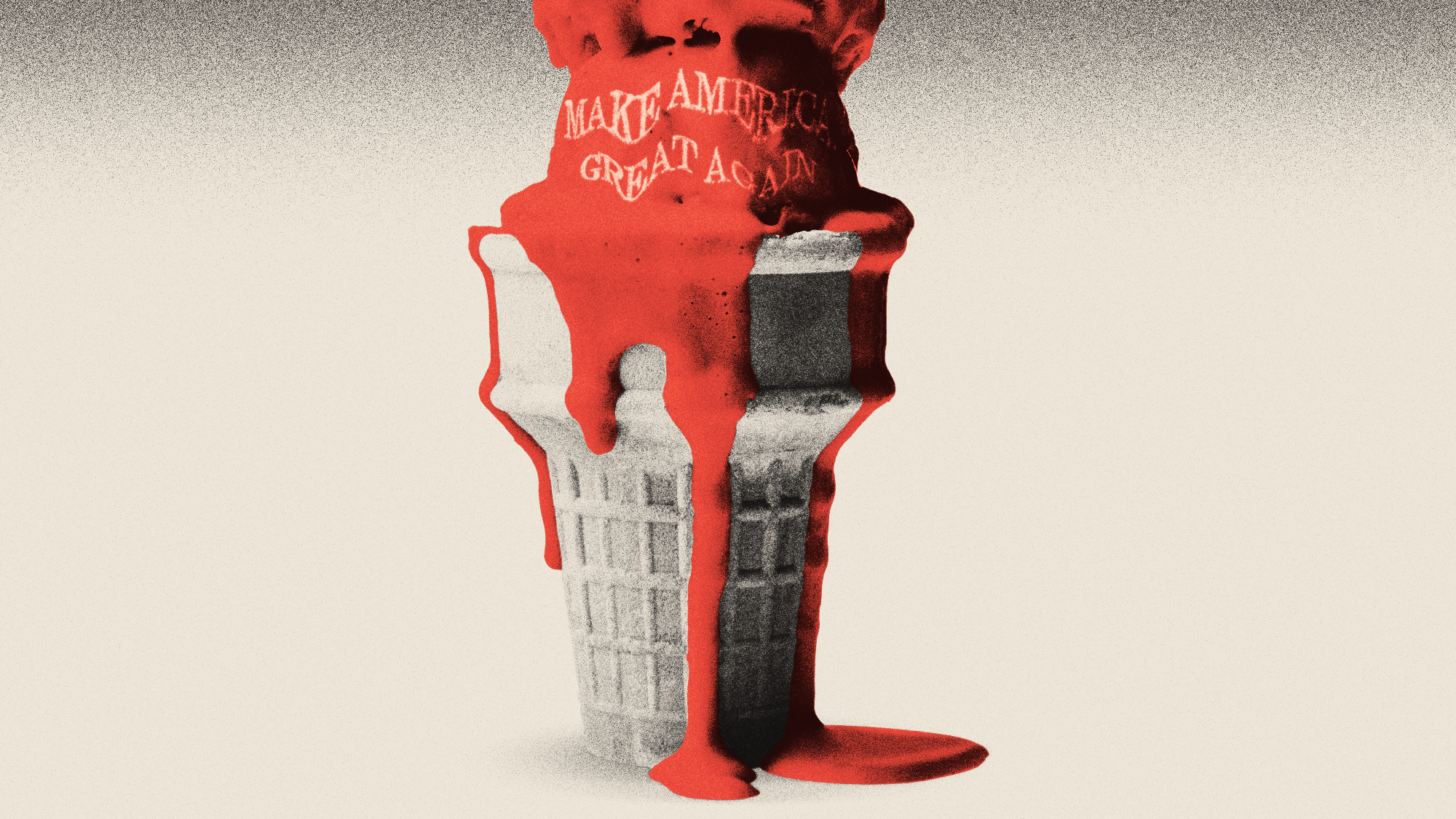Did Greenspan try to cover up the housing bubble?
Newly released Federal Reserve minutes from 2004 spark accusations that former Fed chairman Alan Greenspan silenced warnings of a bubble ready to burst

Former Federal Reserve chairman Alan Greenspan is in the hot seat, after newly released Fed transcripts sparked accusations that he tried to hide evidence of a looming housing crash from the public. At a March 2004 meeting, numerous members of the board voiced concerns that a housing bubble was developing (in fact, one was), but Greenspan seemed — in the interpretation of some commentators, anyway — to favor stifling such arguments so as not to "lose control of a process that only we fully understand." Are Greenspan's cryptic words proof that he is more culpable for the bubble than previously thought?
Greenspan's conduct is disturbing: "Hoo boy," says Paul Krugman in The New York Times. Not only did Federal Reserve policy makers disregard staff reports "seriously suggesting a housing bubble," Greenspan "wanted no hint of the discussion made public." That's "seriously disturbing."
The Week
Escape your echo chamber. Get the facts behind the news, plus analysis from multiple perspectives.

Sign up for The Week's Free Newsletters
From our morning news briefing to a weekly Good News Newsletter, get the best of The Week delivered directly to your inbox.
From our morning news briefing to a weekly Good News Newsletter, get the best of The Week delivered directly to your inbox.
The maestro's critics are twisting his words: Greenspan didn't hide the housing crisis, says Felix Salmon in Seeking Alpha. He wasn't even talking about the housing bubble -- he was addressing the broader issue of transparency within the Fed. Greenspan was merely arguing against publicizing too information from the meetings, for fear of reducing the Fed's effectiveness.
"Did Greenspan try to quash a housing bubble debate?"
Greenspan was complacent, but he had a point: Alan Greenspan sounds "incredibly arrogant and hubristic in the light of hindsight," say the editors of The Economist, but the man did have a point. He was "saying that with increased transparency, the Fed needs to be more careful about the language it uses lest it give markets whiplash by appearing to veer from one fear to another."
A free daily email with the biggest news stories of the day – and the best features from TheWeek.com
-
 Metaverse: Zuckerberg quits his virtual obsession
Metaverse: Zuckerberg quits his virtual obsessionFeature The tech mogul’s vision for virtual worlds inhabited by millions of users was clearly a flop
-
 Frank Gehry: the architect who made buildings flow like water
Frank Gehry: the architect who made buildings flow like waterFeature The revered building master died at the age of 96
-
 Is MAGA melting down?
Is MAGA melting down?Today's Big Question Candace Owens, Tucker Carlson, Laura Loomer and more are feuding